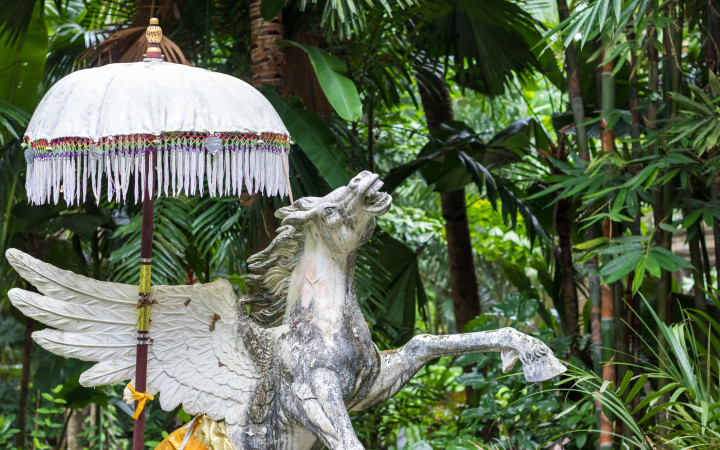Today’s Wonder of the Day was inspired by Rebecca. Rebecca Wonders, “How is greek mytholgy and culture still around today?” Thanks for WONDERing with us, Rebecca!
Have you ever heard of Percy Jackson? How about Hercules? Medusa? If so, you might know that they’re part of Greek mythology.
What is Greek mythology? It’s a set of stories used by the ancient Greeks to understand the world. For the Greeks, mythology was tied to religion. Many experts believe that most Greeks thought the stories were true. Others think that Greek scholars saw the stories as fictional.
Have you ever WONDERed why the seasons change? How about why spiders weave webs? Do you know why the Sun moves across the sky? Science gives us answers to these questions today. But the ancient Greeks found these answers in their mythology.
The Greeks believed in many gods and goddesses. And, in their myths, the Greek gods and goddesses interacted with people often. They even acted like humans sometimes. They could be angry, vain, and jealous.
One of the best-known names from Greek mythology is Zeus. He was the king of the gods. After fighting the Titans, he ruled the world with his brothers and sisters. Their names were Hera, Hades, Poseidon, Hestia, and Demeter.
There are twelve major Greek gods and goddesses. They are called the Olympians. The Greeks explained many parts of nature with stories about the Olympians. The story of Hades, Persephone, and Demeter explained the changing seasons. The goddess Athena turned a weaver named Arachne into the first spider. Zeus’s son, Apollo, pulled the Sun across the sky. Remember, the Greeks didn’t have modern science. This is how they understood the world.
The Greeks also believed the Olympians ruled over different parts of the world. Zeus ruled the sky. Poseidon took charge of the sea. Hades ruled the Underworld. They believed Hera was the goddess of marriage and birth. Demeter ruled over the harvest, and Hestia was the goddess of the home. Other gods and goddesses had their own jobs.
The Greeks also had many stories about heroes. They were often demigods. That meant they had one human parent. Their other parent was a god or goddess. Famous Greek heroes include the demigods Hercules, Theseus, and Achilles. They did great things, often with the help of the gods.
Sometimes, the Greek heroes had help from mythical creatures. One example was Pegasus. This was the flying horse often ridden by heroes and gods. More often, the creatures meant the heroes harm. A few examples are the Minotaur, Medusa, and Hydra. Heroes had to prove themselves by fighting these creatures.
Rome defeated Greece in 146 BCE. So how do people today know about Greek mythology? Many of the stories were told in ancient Greek texts. This includes Theogony, The Iliad, and The Odyssey. The Romans also took many characters and stories from the Greeks to make their own mythology. That’s another way Greek mythology lived on.
Do you know any stories from Greek mythology? Many of them are still told today. Greek myths influence many modern books, TV shows, and movies. Read more about Greek mythology, and you may notice some familiar stories!
Standards: C3.D2.His.2, CCRA.L.3, CCRA.L.6, CCRA.R.4, CCRA.R.1, CCRA.R.2, CCRA.R.10, CCRA.W.2, CCRA.W.3, CCRA.L.1, CCRA.L.2, CCRA.W.7, CCRA.SL.1, CCRA.SL.2




